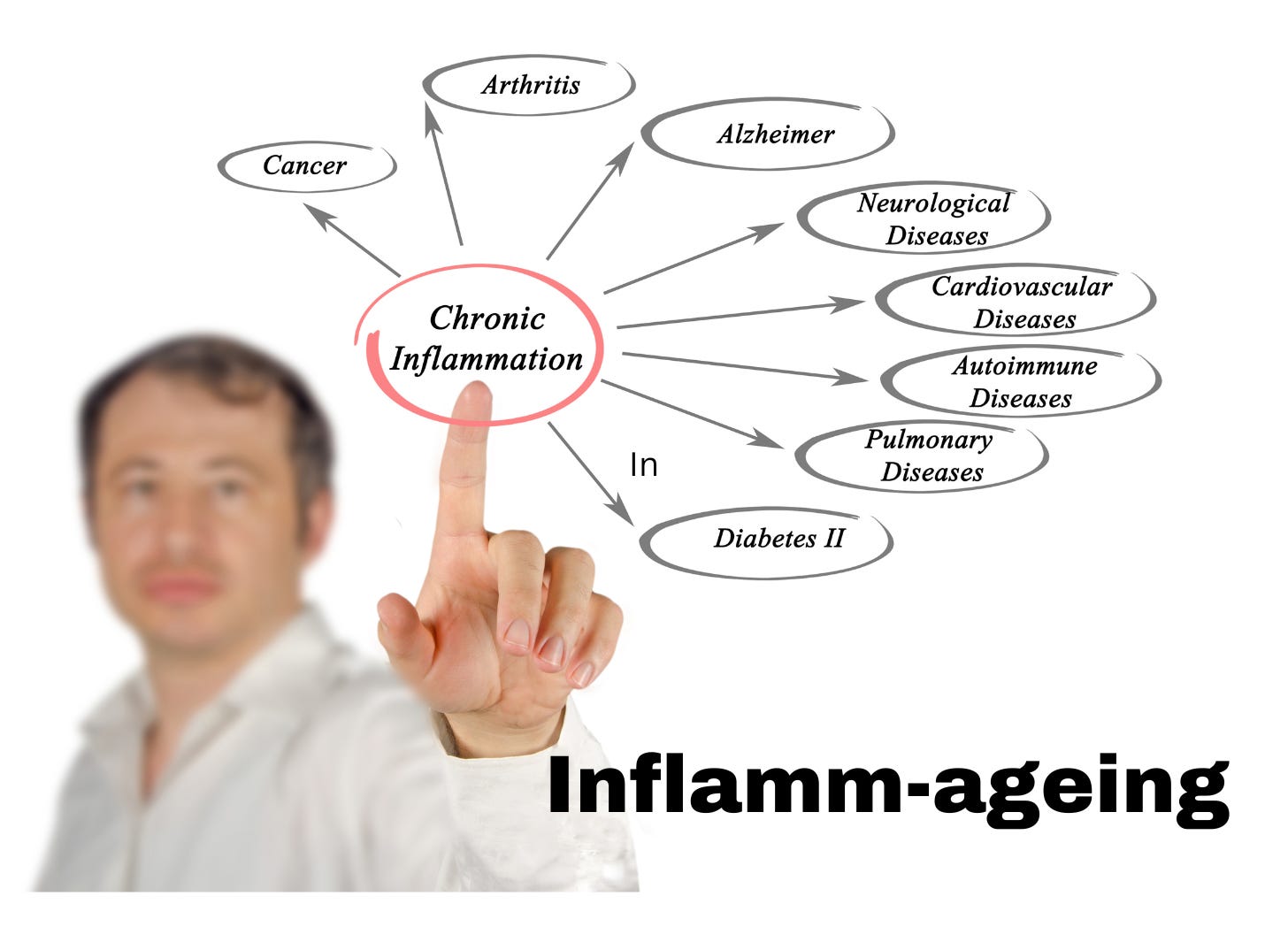Inflamm-Ageing - Getting Older and Feeling Sick
Ageing is a natural process that every living thing goes through. As we get older, our bodies change in many ways. One of these changes is how our body responds to harmful things like infections or injuries. This response is called inflammation. Inflammation is like an alarm system in our body. When something harmful happens, like a cut or an infection, our body's alarm system goes off. This causes the area to become red, warm, and sometimes painful. This is our body's way of trying to heal and protect itself.
But, as we get older, this alarm system doesn't turn off as easily. It's like having a car alarm that goes off and doesn't stop, even when there's no danger. This constant alarm in our bodies is called "Inflamm-ageing." It's a mix of the words "inflammation" and "ageing."
Now, you might wonder, why does this happen? Well, our bodies are made to last for a certain amount of time. Long ago, people only lived to be about 40 or 50 years old. But today, thanks to better medicine and living conditions, we live much longer. This means our body's alarm system has to work for a longer time. And just like a car that's been used for many years, our body's alarm system can get a bit worn out. This can cause it to stay on longer than it should.
This constant inflammation can cause problems. It can damage our organs and make us feel sick. It's also linked to many diseases that older people often get, like heart disease, diabetes, and even memory problems.
But here's the interesting part: some people live to be 100 years old or even older! These people, called centenarians, have a secret. Even though they have signs of Inflamm-ageing, they also have something that helps balance it out. They have high levels of good things in their body that fight against inflammation. Plus, their genes, the tiny bits of information in our cells that make us who we are, also help protect them.
Individuals that live to be 100 years old or older, have certain characteristics that help balance out inflamm-ageing. The good things in a centenarian's body that help counteract inflamm-ageing include:
1. High levels of anti-inflammatory cytokines: These are proteins that help reduce inflammation in the body.
2. Protective genotypes: Genotypes are the genetic makeup of an individual. Centenarians have certain genetic markers that are associated with reduced pro-inflammatory abilities. This means they have genes that help reduce inflammation.
3. Effective inflammatory responses: Even though centenarians have signs of inflamm-ageing, they are still capable of mounting effective inflammatory responses when needed.
4. Strong and effective anti-inflammatory responses: This means that while they can have inflammation when needed (like when fighting an infection), they also have strong systems in place to reduce unnecessary inflammation.
5. Opposite frequencies of "bad" genotypes: Compared to individuals with major age-related diseases, centenarians have fewer genes that are associated with inflammation and more genes that are protective against it.
In essence, centenarians have a unique balance of pro-inflammatory and anti-inflammatory factors in their body, which likely contributes to their longevity and ability to counteract the effects of inflamm-ageing.
So, what can we learn from this? It's important to take care of our bodies as we get older. This means eating healthy foods, staying active, and seeing the doctor regularly. By understanding Inflamm-ageing, scientists are trying to find ways to help our bodies' alarm system work better as we age. This way, we can all hope to live longer, healthier lives!
Remember, ageing is a part of life. But with knowledge and care, we can make sure our golden years are as golden as possible!



